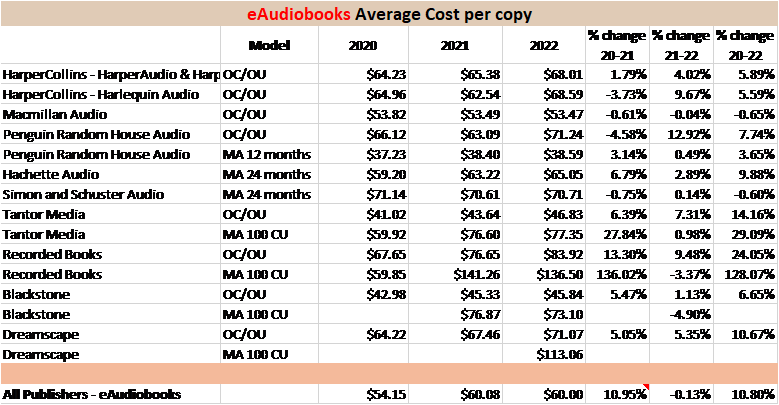IA Events and Trial Developments
/The Internet Archive is hosting some virtual events of interest.
The first, on October 12 (10am – 12pm PT—so 1 to 5 Eastern) , is Library Leaders Forum 2022. “Join experts from the library, copyright, and information policy fields for a series of conversations exploring issues related to digital ownership and the future of library collections,” including “new community developments with controlled digital lending. . . the new projects that we’re gearing up to support in 2023 and beyond.”
[Those new to the IA might also want to attend the October 11 Empowering Libraries Through Controlled Digital Lending: The Internet Archive's Open Libraries Program. Also, there is also an in-person Library Leaders Forum on the 19th]
On October 19, either in-person or virtual, is Building Democracy’s Library. “Why is it that on the internet the best information is often locked behind paywalls? Brewster Kahle, founder of The Internet Archive, believes it’s time to turn that scarcity model upside down and build an internet based on abundance. Join us for an evening event where he’ll share a new project—Democracy’s Library—a free, open, online compendium of government research and publications from around the world. Why? Because democracies need an educated citizenry to thrive.”
Speaking of Democracy’s Library, developments have occurred in the trial of one of the closest things we’ve seen so far to that, the IA Open Library. As noted by Andrew Albanese in Publishers Weekly (without whose work most of us would be less informed and the poorer for it), the AAP/Publishers and IA have traded dueling reply briefs to the others claim for summary judgement (that is, settling the matter without trial). Readers are encouraged to read the article, which nicely summarizes both sides. Briefly (very much so!), the AAP /Publishers argue that Controlled Digital Lending (CDL) isn’t legal, that the IA doesn’t even follow CDL properly because it has sometimes allowed access to more digital copies than exist in their backup print archive (violating the “owned to loaned” ratio), that the IA should have to pay damages, and that Congress alone should determine the future of digital books (I’m sure they’d like that, considering how much they pay in campaign donations). The IA responds that CDL is legitimate extension of libraries’ normal operations, that the publishers are not harmed by digital lending of what libraries legitimately own in print than they are by print lending, that the publishers are trying to restrict libraries to inefficient [and they might have added ruinously costly] modes of lending order to encourage patrons to buy rather than borrow from the library, and that the low quality scans used by the IA are not in competition with licensed ebooks.
The next round of replies is due October 7.
It seems unlikely this case will be settled in summary judgment. The judge is likely to want to see specific examples of CDL and more evidence presented in court. Could this one eventually reach the Supreme Court, since it has come differences with the Redigi precedent cited by the AAP/Publishers? Maybe, in many years. With the court’s current makeup, that might not look good for libraries. No matter what, to many libraries are using CDL well, including for ILL, for us to want to see the AAP/Publishers’ arguments prevail. Somehow, CDL must emerge as an allowed legal practice, even it it takes a defendant different than the IA. The alternative is, as the IA attorneys have said, a “world in which they [publishers] had complete control over library [digital] lending and could charge libraries for each additional circulation of a book the library already bought.” In short, a world libraries cannot afford, literally and figuratively.



